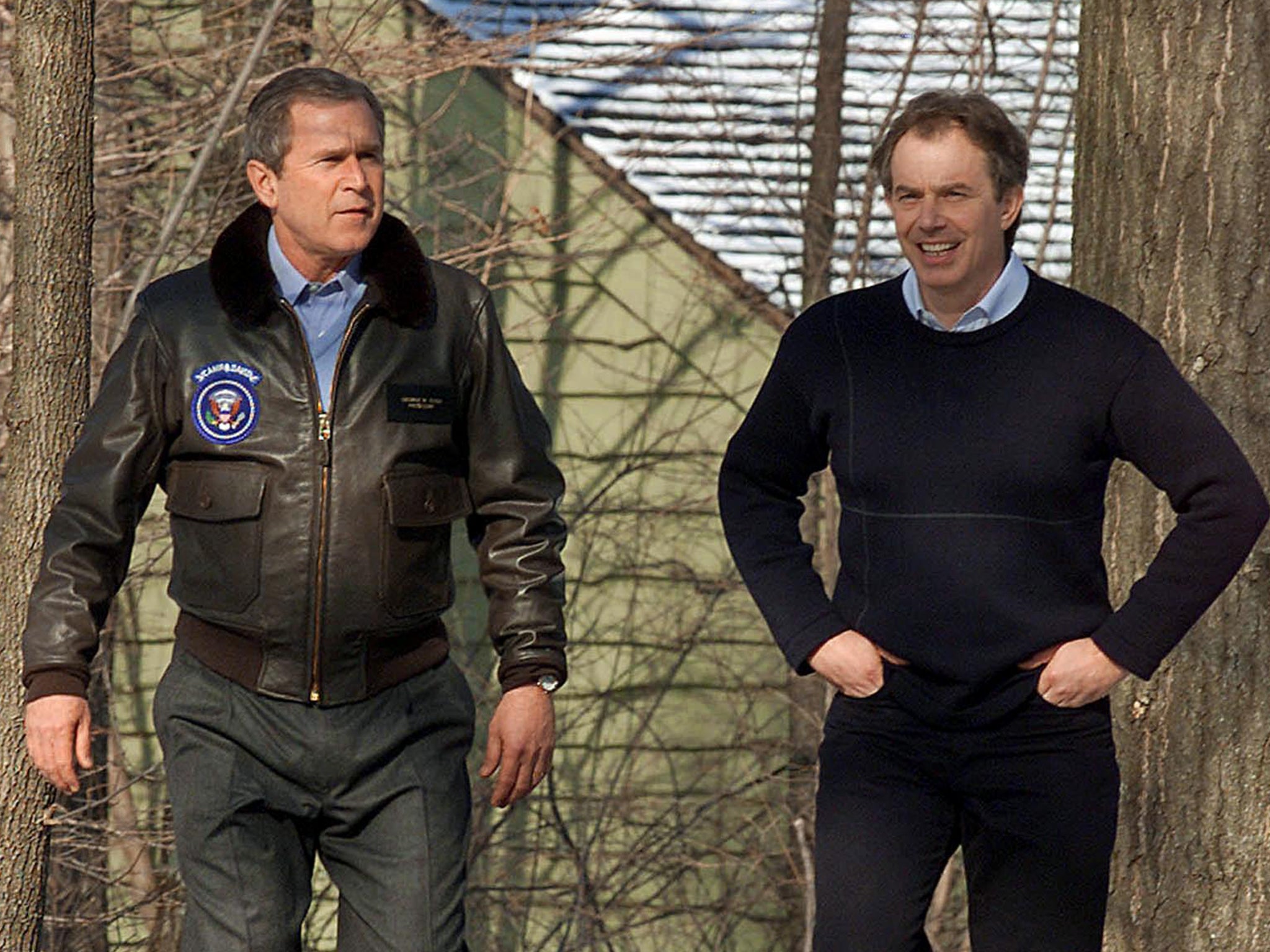What Tony Blair and other MPs said about Afghanistan in 2001
John Rentoul looks back at what British politicians said at the start of our 20-year intervention


Parliament was recalled on 4 October two decades ago to discuss the “coalition against international terrorism”. It was just three weeks after al-Qaeda had destroyed the Twin Towers in New York, and President George W Bush was preparing, with the US’s allies, to begin military action against the Taliban regime in Afghanistan, which was harbouring Osama bin Laden, the al-Qaeda leader.
Prime Minister Tony Blair told the House of Commons: “The Afghan people are not our enemy, for they have our sympathy and they will have our support. Our enemy is Osama bin Laden and the al-Qaeda network, who were responsible for the events of 11 September. The Taliban regime must yield them up or become our enemy also. We will not act for revenge. We will act because we need to for the protection of our people and our way of life, including confidence in our economy. The threat posed by Bin Laden and his terrorism must be eliminated. We act for justice. We act with world opinion behind us and we have an absolute determination to see justice done and this evil of mass international terrorism confronted and defeated.”
Iain Duncan Smith offered the opposition Conservative Party’s full support: “This is not about revenge and it is not about retribution, and it is not only about justice against one man; it is about standing up for what is right against what is wrong. It is about upholding civilised values against anarchy and it is about defending good against the evil of terrorism. So today we should reaffirm our single and collective purpose in this house. No excuses can be made, no justification sought and no help offered to those who would carry out such deeds. Simply put, let right be done.”
Charles Kennedy, for the Liberal Democrats, said they “fully support” the government, but asked some questions: “Is the aim to remove the Taliban regime from power? What analysis has been made of the possible political and humanitarian consequences if they are driven out of power and, ultimately, what shape or form of regime are we striving to see established in Afghanistan?”
Even Alex Salmond, who was then the leader of the Scottish National Party in the Commons, did not oppose military action, asking Blair only to “reiterate that the military options available will avoid, wherever possible, the loss of further innocent lives”.
Jeremy Corbyn was one of the handful of backbenchers to oppose the use of force, asking for a UN court to bring Bin Laden to justice.
After air and cruise missile attacks began in support of the Afghan Northern Alliance on 7 October, parliament was recalled again the next day. Blair said: “We are doing all we can to limit the effect of our action on ordinary Afghans. I repeat: we will not walk away from them once the conflict ends, as has happened in the past. We will stand by them and help them to a better, more stable future under a broad-based government involving all the different ethnic groupings. That is our commitment to the people of Afghanistan.”
Again, military action was supported by Duncan Smith, Kennedy and Salmond, although the Lib Dems and the SNP were more reserved. Kennedy said, “The actions taken so far are both just and proportionate,” and Salmond added: “The vast majority of members have concluded – I hope, reluctantly – that military action had become inevitable.”
An opinion poll carried out by Ipsos Mori on 9 October found that two-thirds of the British public (69 per cent) supported “taking action against Afghanistan”, while 23 per cent opposed it and 10 per cent said they didn’t know. Furthermore, 72 per cent supported “British troops being involved in this action”, while 22 per cent opposed and 6 per cent didn’t know.
Charles Kennedy’s question about what “form of regime” we were “striving to see established in Afghanistan” remains unanswered to this day, although it might be said that Tony Blair’s pledge to “stand by” the Afghan people has been redeemed: if those MPs had known that British troops would still be in Kabul 19 years and 10 months later, they probably would have been surprised.



Join our commenting forum
Join thought-provoking conversations, follow other Independent readers and see their replies
Comments